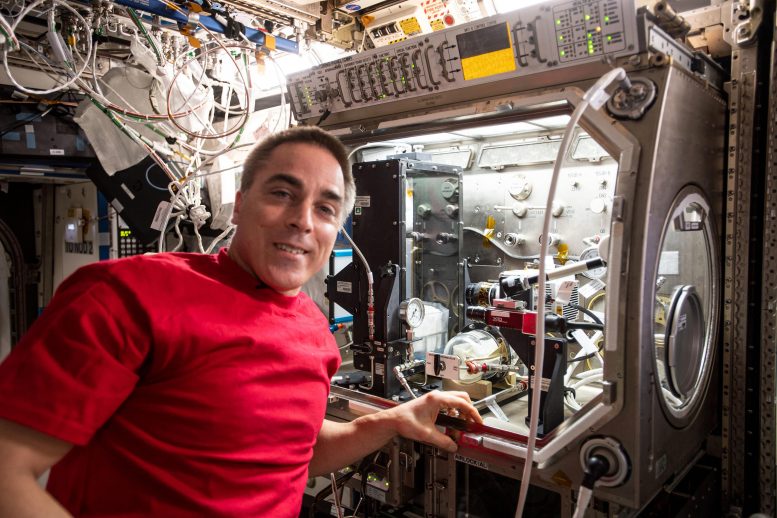
Expedition 63 Commander and NASA astronaut Chris Cassidy installs fluid research hardware inside the U.S. Destiny laboratory module’s Microgravity Science Glovebox. Cassidy was working on the Droplet Formation Study that observes how microgravity shapes water droplets possibly improving water conservation and water pressure techniques on Earth. Credit: NASA
Free-flying robots, planetary bodies, and water droplets were just part of Tuesday’s research plan aboard the International Space Station. The Expedition 63 trio also serviced a variety of communications gear and life support systems.
NASA and its international partners are planning human missions to the Moon, Mars and beyond and the space station represents a big step in that effort. The orbiting lab provides a unique platform to learn about the long-term effects of microgravity on a variety of systems.
A set of cube-shaped, robot assistants are flying around on their own today inside Japan’s Kibo laboratory module. Engineers are looking at video and imagery downlinked from the Astrobee devices to understand how the autonomous free-flyers visualize and navigate their way around the station.
Commander Chris Cassidy took a look at dynamic granular material samples this morning that simulate planetary surfaces. The experiment is taking place inside ESA’s (European Space Agency) Columbus laboratory module and could inform future planetary exploration missions.
The veteran NASA astronaut also split his time between botany and fluid physics. Cassidy worked on the Plant Habitat-02 checking growth lights and installing an acoustic shield to protect the plants from station noises. Next, he moved onto commercial research to improve water conservation and water pressure techniques on Earth.
In the Russian segment of the station, the two cosmonaut flight engineers worked on their complement of orbital science and lab maintenance. Anatoly Ivanishin serviced video equipment and an air purifier before conducting Earth observations. Ivan Vagner collected air samples for microbial analysis and explored ways to improve interactions between mission controllers, students and space crews.

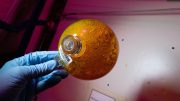
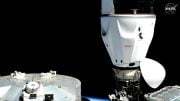
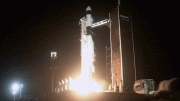
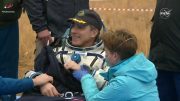
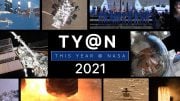
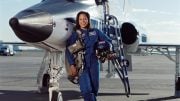
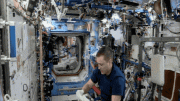
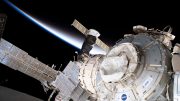
Be the first to comment on "Remaining Space Station Crew Busy With Fascinating Research: Free-Flying Robots, Planetary Bodies and Water Droplets"